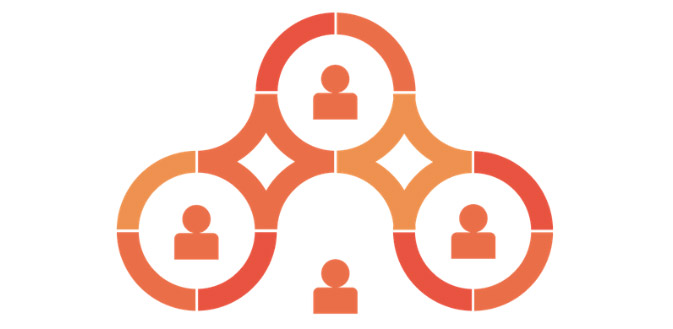Digital marketing isn’t exactly the “new kid on the block” anymore. More than 20 years after AT&T ran the first mainstream banner ad on HotWired.com, the industry has evolved into a juggernaut that has all but supplanted traditional media as the most effective way for businesses to reach their audiences, especially amid unprecedented global changes to consumer behaviour.
While digital marketing tools and best practices have evolved over the last two decades, the goal has always been the same: reach your audience and establish a meaningful connection to create a sustainable, consistent revenue stream. Marketers who do this successfully add value to their organizations, with their strategies becoming engines that drive business growth. Read on to understand the past, present, and future of digital marketing, as well as how your business can set itself up for consistent results in the digital landscape.
The Same Questions, Different Answers
The concept of marketing, as it’s understood today, has its roots in the Industrial Revolution. Although almost nothing about the practice (or the world, for that matter) has remained the same, digital marketers are still answering the same questions that their forefathers did nearly 300 years ago. These questions are:
- Who is my audience?
- What is my audience looking for?
- When will my audience be most receptive to my message?
- Where should I market to ensure my audience sees my message?
- Why are my products/services valuable to my audience?
- How is my message tailored to be relevant to my audience?
Just as it has always been, marketers who answer these questions correctly will be able to convert their target audiences into customers. In the modern era, professionals who consistently leverage digital platforms to reach and connect with their audience will be able to drive revenue and growth for their organizations. Digital marketing has provided new methods and advantages to help answer these questions.

Multi-Platform Marketing in the Digital Age
Ironically, early iterations of the Internet (notably ARPANET and NFSNET, both used by scientists and researchers to share data) explicitly prohibited marketing or advertising of any kind. However, by the mid-90s, the Dot-Com Boom was in full swing, and savvy marketers had discovered that online marketing strategies were cheap, effective methods to reach an ever-expanding audience. Although the “bubble” eventually burst in the early 2000s, the advent of Web 2.0, including the introduction of social media and mobile technology, rejuvenated digital marketing and provided organizations even more tools and platforms to broadcast their message.
Today, digital marketing is a multi-headed beast, with an overwhelming number of strategies and platforms to leverage. Here are some statistics to give some perspective on how massive the digital universe has become:
Every day:
- 1.66 billion people log in to Facebook.
- 500 million tweets are shared.
- 350 million Instagram users check their feed more than once.
- 5 billion YouTube videos are watched.
- 5 billion searches are done in Google (that’s nearly 60,000 every second!)
By sheer volume alone, it’s clear that digital marketing needs to be part of every business strategy. However, with so many platforms and even more strategies for each, many businesses struggle to create marketing plans that deliver consistent performance in today’s crowded digital environment.
Consistency Is King
In today’s landscape, it isn’t easy to get noticed, let alone achieve the consistent results necessary for digital marketing to grow your business. Nonetheless, marketing systems built around consistency drive innovation and empower companies to invest in the future and adapt to change in ever-evolving markets.
All too many marketing professionals and agencies focus on tactics that differentiate their clients in a hurry—eye-catching designs, all-in campaigns, silver bullet solutions- whatever it takes to get results quickly. While short-term solutions may offer a temporary boost in traffic and sales, they aren’t engineered for sustainable results. Without consistent marketing programs, businesses cannot reliably invest in their future, defend against their competition, or expand to new markets.
Digital marketing provides unparalleled access to data to help adjust and adapt your mix or strategies to deliver improved performance over time and more reliable results.

Marketing Systems Engineering – The Future of Digital Marketing
With twenty years’ experience in digital marketing, Atrium Digital has helped its clients achieve sustained digital marketing success in a wide variety of fields and industries. Our unique Marketing Systems Engineering approach is designed from the ground up to engineer consistency. Rather than focus on one-time wins and continue a cycle of unsustainable growth, MSE aims to engineer systems, build platforms, and optimize routines to gain consistent results and allow organizations to experience sustained growth through digital marketing.
Our service offerings span the entire digital marketing landscape. Whether you’re looking to employ search marketing, traditional online advertising, social marketing, or website development and CRO, Atrium’s data-driven marketing systems put powerful marketing routines at your fingertips, allowing you to maximize your return on investment and lead your business to consistent digital marketing performance.
Final Thoughts
Now more than ever, digital marketing strategies require thoughtful planning, attention-to-detail, and rock-solid execution to maximize ROI and generate growth for your business. Whether you choose to tackle it yourself or enlist the help of a digital marketing agency, a solid digital marketing strategy will deliver consistent results that will allow your business to reach new heights.
Contact us today to learn how Marketing Systems Engineering can put your organization on the path to marketing success.
Most Popular News
How to use Search Marketing Content for Thought Leadership
Are you looking to establish your business as a leader within your industry? Utilizing search marketing content for thought leadership can assist you in reaching that goal. While search marketing is different from thought leadership,...
The Difference Between Owned, Earned & Paid Social Marketing
Learning the ins and outs of owned, earned, and paid social media marketing can be vital for your brand's overall health. It is also good to know the differences to avoid taking unnecessary financial risks. The best part is that...
5 Steps to Start Aligning Sales and Marketing
Sales and marketing alignment (also known as smarketing) can be the difference between a business' success and failure. Despite their similarities and seemingly close relationship, it's not at all uncommon for marketing to pull your...
Marketing Tools You Should Know in 2021
If you've worked in digital marketing for any length of time, you undoubtedly know that it's constantly evolving. As professionals, we have to change and adapt along with it, incorporating new knowledge and refining our approach to...

